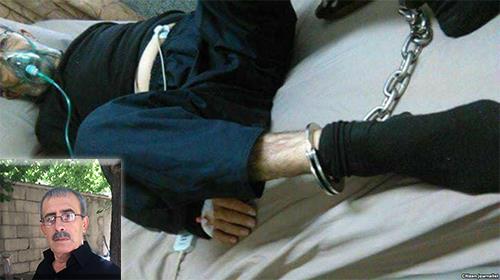More than half of global executions carried out in Iran, says report
Iranian opposition protesters march during a rally to protest against executions in Iran, as Iranian President Hassan Rouhani is in France for a two-day official visit, in Paris, on Jan. 28, 2016.
According to the latest report of the Amnesty International as reported in Iran Focus website, among all the recorded executions worldwide last year, more than 51 percent were carried out in Iran.
Although second, behind China in terms of executions, Iran “carried out 84 percent of the global total number of executions.”
The number of executions in Iran last year was 507, “accounting for 60 percent of all confirmed executions in the region.” Of the 507 people executed, “501 were men and six were women. At least five juvenile offenders were executed, and 31 executions were carried out publicly.”
Amnesty International believes that hundreds of other death sentences may have been imposed in Iran but were unable to confirm figures. Mahmoud Amiri Moghaddam, who heads the Iran Human Rights Organization based in Norway, said in an interview that some “70 to 80 percent of executions in Iran are not reported.”
Amnesty International reported that the executions last year were carried out for murder (240); drug trafficking (205); murder and rape 4; robbery 11; “spreading corruption on earth” 2; rape (male on female rape) 16; kidnapping and murder 3; moharebeh (politically motivated) (2); and 19 e for offenses that could not be confirmed.”
Among those executed were five who committed crimes when they were under 18 years old. Sentencing a person to death for a crime committed when they were juvenile is a violation of international law.

An Iranian opposition group protester holds up a placard bearing a picture of Iran President Hassan Rouhani and writings reading “No to Rouhani no to executions”, during a protest outside the Iran Embassy, in Rome, on Jan. 2, 2018.
Amnesty International also found that for the first time there were more executions for “murder than for drug-related offenses.”
Anti-Narcotics Law amendment
The decrease in drug-related crimes has been attributed to the amendment in the Anti-Narcotics Law in Iran in November which effectively raised the “level of drug possession needed to trigger the imposition of a mandatory death sentence, with potential retroactive effect.”
The decrease in drug-related crimes has been attributed to the amendment in the Anti-Narcotics Law in Iran in November which effectively raised the “level of drug possession needed to trigger the imposition of a mandatory death sentence, with potential retroactive effect.”
Amnesty International noted with concern that Tehran continued to use the death penalty for conduct that does not “amount to a recognizably criminal offense.”
Vague charges like ‘enmity against God’, ‘spreading corruption on earth’ are punishable offenses in Iran.
As per the research conducted by Amnesty International found that in many death penalty cases, basic fair trial practices were not adhered to. ‘Confessions’ extracted under torture were used in courts to impose death sentences. These ‘confessions’ were “broadcast on television before the trial took place, further violating the defendant’s right to be presumed innocent until proven guilty,” the report stated.




Comments
Post a Comment